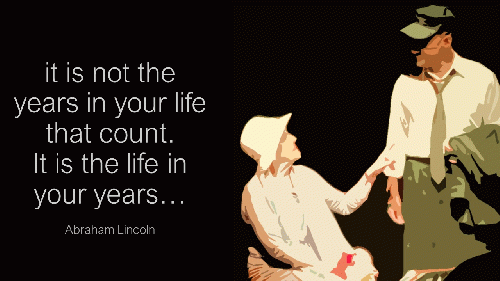...So said the famous playwright and political activist George Bernard Shaw. Alas, instead of being celebrated, older age is feared and looked down upon by many and ageism fuels this fear.
Ageing is a natural process and begins the moment one is born. But ageism is not. The World Health Organisation defines ageism as "the stereotyping, prejudice, and discrimination against people on the basis of their age." Subtle nuances of ageism abound in every nook and corner and lurk in our home, community, workplace, healthcare facilities, media... the list is endless.
The culture of defining relationships on the basis of age is all pervasive in many societies, especially in South Asia. It is often wrongly assumed that older people do not need companionship. Intimacy, companionship and love are as important for the elderly as for the young. Yet in many countries, including India, these human needs are expected to dry up with advancing years, and any manifestation of them is looked down upon.
Sexual health needs of the elderly are often on the blindspot. Even though sexuality is integral to human life, irrespective of age, in many societies there is a cultural taboo around the sexuality of older people. There seems to be a misconception that individuals become 'asexual' as they get older. The elderly are also absent from the discourses around sexual and reproductive health and rights (SRHR). However, the reality is starkly different where the elderly not only face extreme acts of sexual and other forms of gender-based violence but also some get diagnosed with sexually transmitted infections like HIV as a result of barely any sexual healthcare services existing in a friendly manner for them.
These and many other aspects of population ageing in the Asia Pacific region were in the spotlight at the seventh session of the ongoing 10th Asia Pacific Conference on Reproductive and Sexual Health and Rights (APCRSHR10 Virtual).
This region faces a rapidly ageing population. As per 2019 estimates, 548 million (60%) of the world's older population reside in the Asia-Pacific region, and 53% of them are women. Women in this region also outlive men by an average of at least 4 years. Currently, there are 90.8 men for every 100 women above 60 years, and 69.5 men for every 100 women over the age of 80.
These demographic shifts have huge implications related to health, especially in the provision of SRHR related information and services without stigma and discrimination. Women's longer life expectancies result in a large proportion of older women living alone and throw many challenges as older women have lesser income security, and limited access to resources and opportunities, including healthcare, social protection and legal justice, says Sai Jyothirmai Racherla, Programme Director at the Asian-Pacific Resource & Research Centre for Women (ARROW).
Despite their demographic significance, women considered older than reproductive age are excluded from most investments in global public health. Health providers seldom ask older women about their sexual activity and relationships, leading to older women being excluded from necessary HIV testing and care as well as support services for abuse, says Sai.
(Note: You can view every article as one long page if you sign up as an Advocate Member, or higher).






